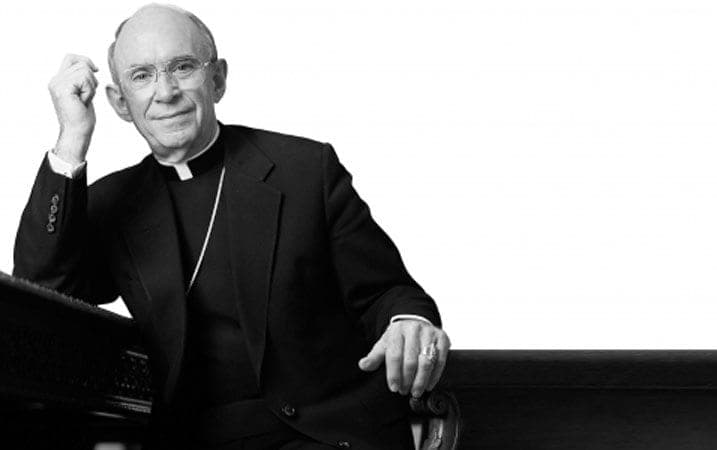Tomorrow, November 14, is the twentieth anniversary of the death of Cardinal Joseph Bernardin of Chicago. The late prelate holds a notable and controversial legacy in the Catholic Church of the United States. Among the many reasons for that legacy is the cardinal’s proposal of the Common Ground Initiative.
Announced a few months before his death in 1996, the initiative was a summation of his life’s work and stands as an invitation for “Catholics with differing views about critical issues in the Church to engage in prayerful dialogue for the sake of building up the communion of the Church.”
This internal conversation hosted by the Common Ground is intended to enhance the church’s perspective and ability to dialogue and exchange ideas with the contemporary world.
More foundational than the particular issues discussed is the initiative’s commitment to the cardinal’s inheritance of a method of dialogue, which he learned out of necessity. Growing up Catholic in downtown Columbia, South Carolina, in the 1930’s and 1940’s, the young Bernardin had to learn how to explain and share Catholic doctrine and customs with a non-Catholic and sometimes antagonistic society.
He excelled in the midst of this challenge by his respectful stance towards others, his keen listening ability, open mind, casual explanations of high theology, and sense of humor. The cardinal believed that the church is at its best when it accompanies and heeds the voices within the human family along its journey of faith.
He argued that the church belongs in the trenches of life suffering and rejoicing with humanity, especially with those who might disagree or even persecute it.
This anniversary of the cardinal’s death is timely, perhaps even providential. As this past week saw Donald Trump elected the 45th president of the United States, the church is reminded that it may very much need the method of dialogue artfully exercised and beautifully displayed in the life and ministry of Joseph Bernardin.
As the recent US election is a flight from traditional political stability, it upsets and nurtures confusion about the future of American culture and public policy.
Admittedly, the new president may give a much-needed focus to the economy and the creation of jobs, while also retrieving some form of a debate on abortion. But President Trump may also threaten immigration development, exaggerate the use of the military, and destabilize race relations.
In the midst of such a bizarre discrepancy, what is the Christian believer to do?
In the spirit of Bernardin, the believer is called to pray, be involved in the public forum, and enter into amicable dialogue with civil leadership. When civil authority is used according to moral truth and the common good, the believer cooperates. When it is opposed to moral goodness and the common good, the believer challenges it and presents a better path.
In both responses, the Christian distinguishes herself by respect and kindness, willing collaboration with goodness, and sound arguments in opposition to offenses against the common good.
The believer is to be involved. She cannot absent herself from the public forum, give herself a pass, or isolate herself from dialogue or participation in civil life
Jesus calls his disciples to be salt, giving taste and flavor to life, rather than empty shadows without presence or lemon juice which sours things and makes them bitter.
With such a call, how can a believer be salt, light, and leaven in their civil participation? Cardinal Bernardin’s method of dialogue can give some pointers. The late archbishop would encourage and stress:
- Respect for both the civil office and the person holding it, realizing that a believer cannot argue human dignity and issues relating to it while speaking in a malicious and offensive manner to the civil leader that diminishes his own dignity;
- Looking for and affirming areas of common ground or shared principles behind laws and policies;
- Identifying areas of policy concern or offense, distinguishing them from the person who holds them;
- Providing sound and clear arguments against policies that diminish the common good, avoiding attacks on persons or presuming intentions of civil leaders or his policies;
- Offering sincere and cordial dialogue and conversation with an open heart and sincere good will;
- Participating in policies and activities that support and build up the common good, even as there might be other bad policies or actions by the same civil leader;
- Opposing bad policy if and when dialogue regrettably collapses or fails, seeking to be clear as why the policy is being rejected and constantly offering renewed dialogue and a path of reform.
This is how believers are called to deal with their civil leadership. It is an approach within the dialogue method taught by the Second Vatican Council, enshrined in the legacy of Cardinal Bernardin, and currently lived so energetically by Pope Francis.












